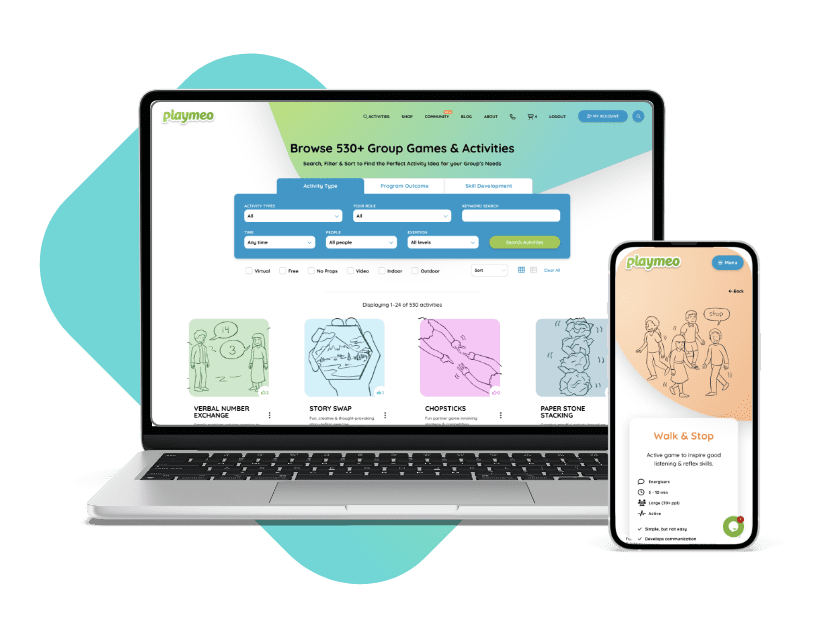Download our free 28-page ebook jam-packed with outrageously fun activity ideas.
Or, in other words, why debrief?
In short, without debriefing an experience (also known as processing your group’s experience,) all you’re really doing is having fun.
There’s nothing wrong with this result, because, as we all know, learning a new skill can be fun. Having fun should certainly be a by-product of your programs, but if it is the only product, then your group could be missing out.
Like most lessons, learning a new skill can also be a valuable opportunity for your group to learn vital life skills, such as communication, goal-setting, confidence, respect and cooperation.
So, why debrief?
When you provide opportunities for your group (especially young people) to discuss what they’ve learned, they:
- Learn to take turns when speaking
- Learn to value other people’s opinions
- Are exposed to new thoughts
- Can have their own opinions validated by hearing from others with the same beliefs
- Become more bonded as a group by sharing thoughts and opinions
- Reflect their level of understanding of a particular skill/topic
- Become more comfortable with expressing themselves in front of their peers.
Conducting a debrief doesn’t have to be hard, boring, or time-consuming. It can (and should) be fun, and extremely rewarding.
Take a look at our How To Run A Successful Debrief article for some useful tips and strategies.
Or, watch a series of four Facilitator Tips video tutorials (episodes 44 to 47) which focus exclusively on developing your debriefing or reflection skills.






